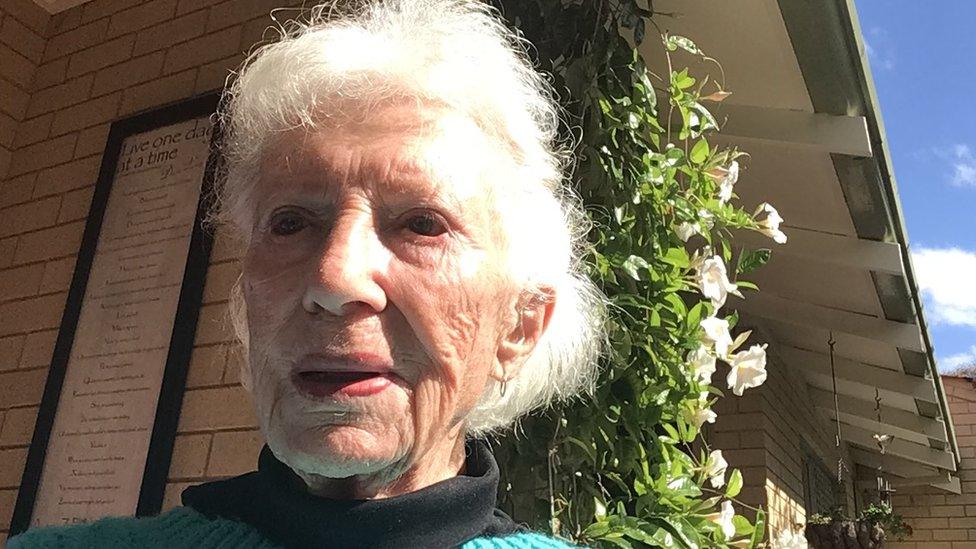Commonwealth Army veteran forced to crowdfund vital surgery
- Published
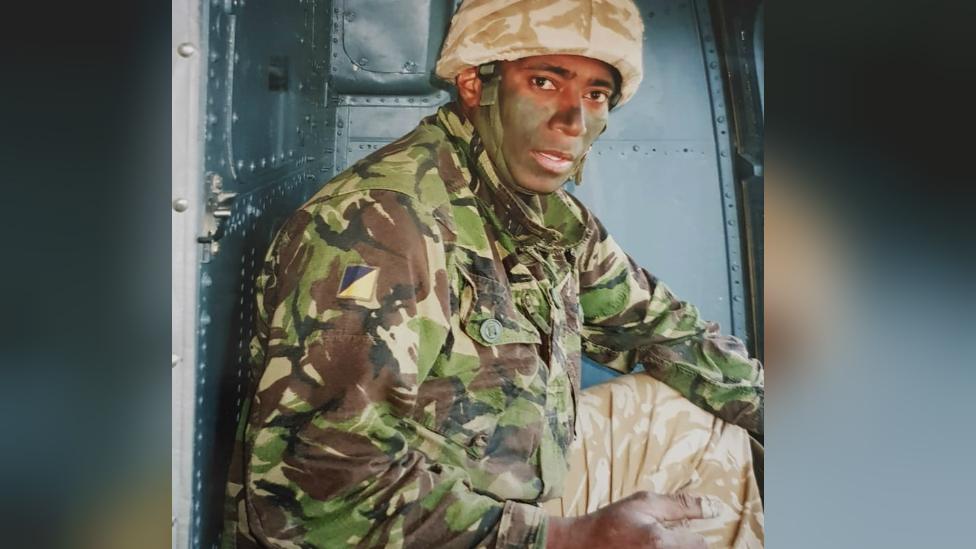
Taitusi Ratucaucau was told he was ineligible for NHS treatment despite serving for more than a decade in the British Army
A Fijian veteran who served in the British Army has thanked the public for helping pay for life saving surgery.
Taitusi Ratucaucau was facing a hospital bill of nearly £30,000.
His immigration status meant he was ineligible for free NHS treatment even though he has served in the Army for more than a decade.
He is one of a number of Commonwealth veterans who are now taking legal action against the government over their rights to settle in the UK.
Earlier this month Mr Ratucaucau had to be rushed to St Pancras in central London after collapsing. Doctors discovered a brain tumour which required urgent surgery.
But he was told he would have to be treated as an overseas patient because of his immigration status.
Recovering in hospital Mr Ratucaucau told the BBC: "I didn't expect this to happen. Never in a million years because I fought for this country."
The Army veteran could not afford to pay the hospital bill and says it was "a big worry" until friends and supporters set up a crowdfunding appeal.
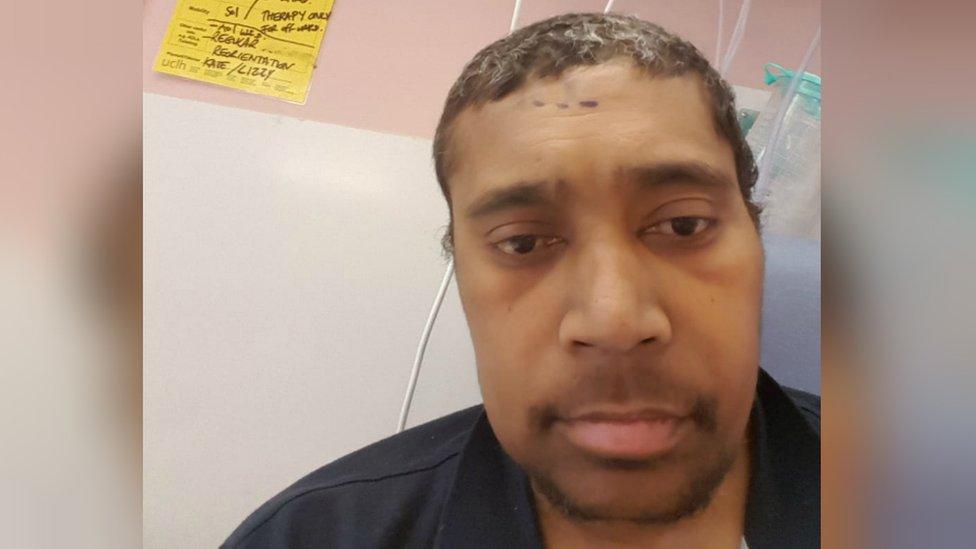
Taitusi Ratucaucau crowdfunded £30,000 to pay for life-saving brain surgery
Mr Ratucaucau says he has been humbled by the generosity of friends and strangers who have now covered the costs.
His case highlights the legal limbo of many Commonwealth veterans who have settled in the UK.
Mr Ratucaucau joined the British Army in 2001 and served in the most dangerous of places with tours of Iraq and Afghanistan.
He left in 2011 thinking he had a right to remain in the country that is now also home to his wife and three children.
But it would cost him almost £10,000 to apply for his family to be granted Indefinite Leave to Remain. It is another bill he says he cannot afford.
Even before his medical emergency Mr Ratucaucau had, along with a group of other Commonwealth veterans, launched a legal challenge over his immigration status.
They accuse both the Ministry of Defence and the Home Office of failing to properly explain "the complex and expensive immigration rules", specifically to those who were discharged before 2013.
Countries such as Fiji have long been a fertile recruitment ground for the British Armed Forces.
The Army currently has around 5,000 troops who come from Commonwealth nations and there are plans to recruit more.
But Esita Tuimanu says many of those who served have suffered discrimination. She has helped set up a group, Commonwealth Neglected Veterans, to campaign for changes to the law.
She has already been contacted by 70 Commonwealth veterans who are fighting for their rights in the UK.
Esita too was facing an uncertain future as the dependent of a Commonwealth soldier who was injured in Afghanistan.
"If someone is willing to sacrifice their lives to serve Queen and Country," she says, "then I'm absolutely certain they deserve to be here".
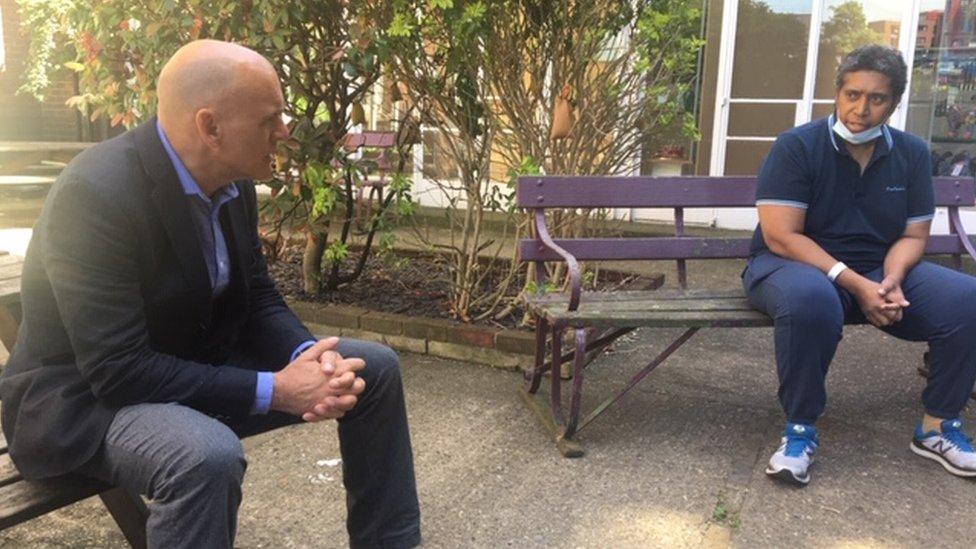
Taitusi Ratucaucau told the BBC he did not expect to be ineligible for NHS treatment
Both the Home Office and the Ministry of Defence say they cannot comment on individual cases but they defended the current policy.
In a statement, a government spokesman insisted that Commonwealth recruits and their families "are made aware of how they can settle in the UK and the costs involved".
Anthony Metzer QC and his junior counsel Sarah Pinder of Goldsmith Chambers, along with lawyer Vinita Templeton, are working pro bono to mount a judicial review of the government's position.
Mr Metzer says the fact that his clients have "no settled status here at all, feeds a real sense of uncertainty and deep injustice".
He points to the fact that Commonwealth veterans are being charged for visas, while Afghan interpreters who worked for British Forces have had those same fees waved.
He also says the treatment of Commonwealth veterans is in breach of the Armed Forces Covenant which should protect all veterans from discrimination.
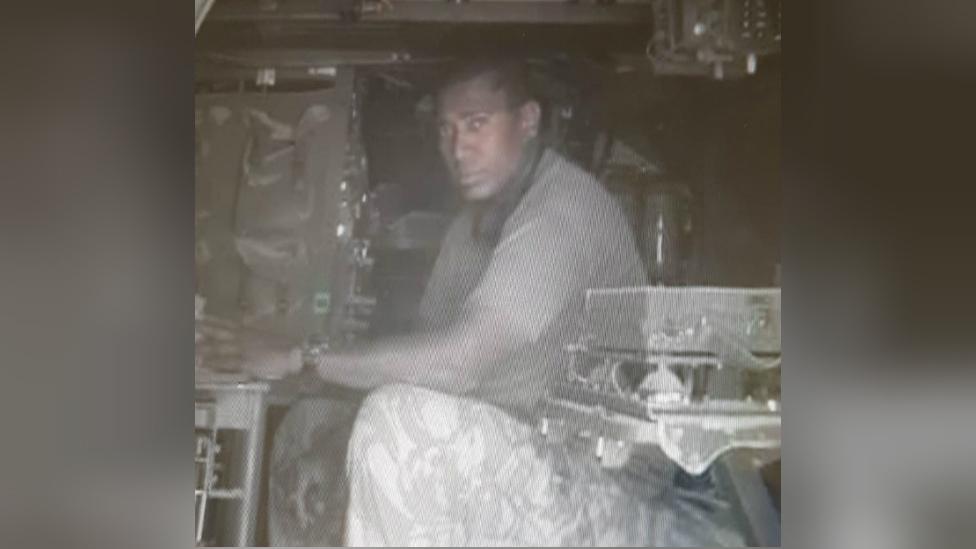
Mr Ratucaucau says he feels betrayed
Back recovering in hospital Mr Ratucaucau's faith in Britain has partly been restored by the generosity of the public who have helped pay his medical bill. But he says he still feels betrayed.
"If I knew it was going to be like this I would never have come here."
- Published7 May 2020
